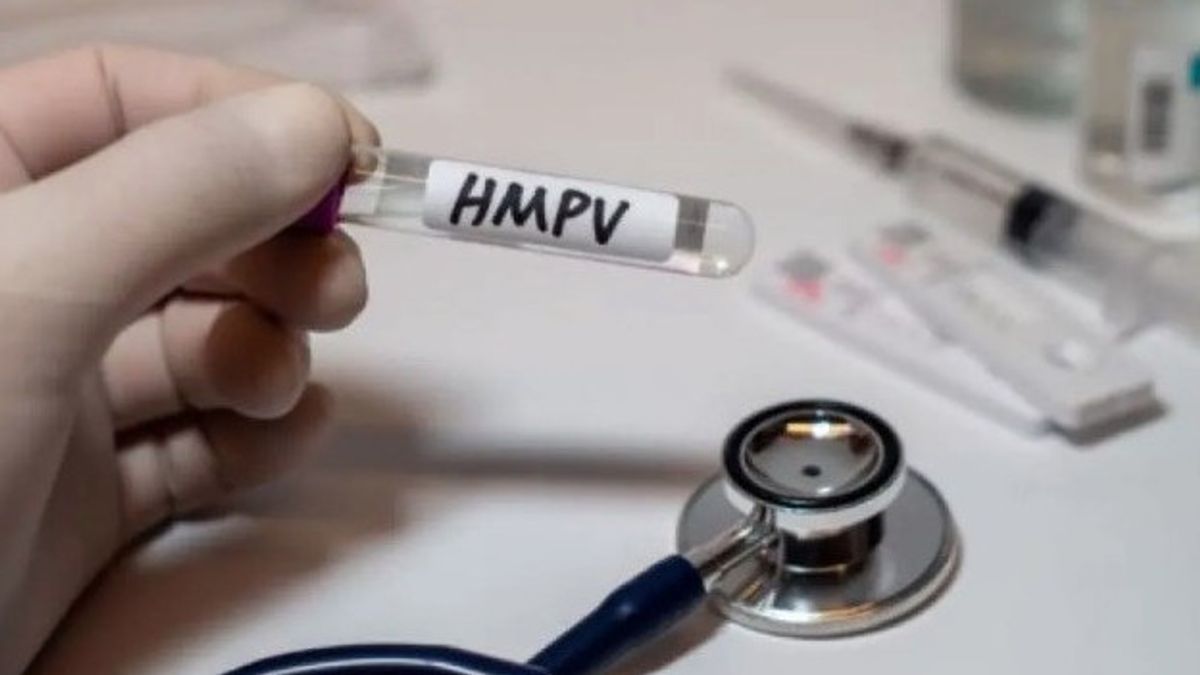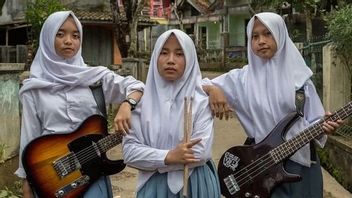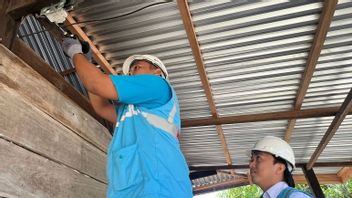
JAKARTA The Indonesian people are asked to be calm, but remain vigilant, following the news that a number of children were reported to be infected with the Human Metapneumovirus (HMPV) virus. The Indonesian Doctors Association or IDI emphasized that HMPV is actually not a new virus, because it has existed since 2001.
In the past few weeks, the world has been concerned about the outbreak of HMPV infections in China. Senior health officials in China said the number of infections in this virus had increased, especially in the age group of 14 years and under.
Now, Indonesia and India are also reporting cases of HMPV. This was confirmed by the Minister of Health, Budi Gunadi Sadikin.
"HMPV has long been found in Indonesia, if you check whether it exists, it's there. I myself saw the data in several labs yesterday, it turns out that some children have been affected by HMPV," Budi said in a written statement from the Ministry of Health.
SEE ALSO:
However, people are still worried because the shadow of the COVID-19 pandemic has not completely disappeared from their memories.
Citing the website of the World Health Organization (WHO), Human Metapneumovrus (HMPV) is one of the viruses that causes the common cold (upper exposure channel infection). This virus usually only makes people lightly ill, but in some people it can cause severe illness.
The WHO confirmed that this virus was first identified in 2001 and has spread among humans for decades. This virus is also found around the world.
This virus spreads like other common cold viruses, through infectious respiratory particles that spread through the air from sick people to others, the WHO statement said.
This means someone can catch this virus while near sick people or share a closed room with a sick person.
Recently, photos and videos circulated on social media showing large crowds as well as long queues at hospitals, clinics and medical centers in China. But China considers an increase in respiratory infection cases such as HMPV to be common because it is in a long winter.
China's Centers for Disease Prevention and Control (CDC) urges its citizens to keep themselves protected such as wearing masks, updating vaccine status, and maintaining good hygiene.
"Respiratory tract infections tend to peak during winter in the northern hemisphere," Chinese Foreign Ministry spokesman Mao Ning said at a press conference in Beijing on January 3.
These disease appear to be milder and the spread is smaller than the previous year.
Provinces in northern China such as Beijing, Tianjin, and Hebei are among those experiencing an increase in HMPV cases. These areas do have colder temperatures than the southern region, so the virus tends to last longer.
The increase in HMPV cases in China has made the Indonesian people feel worried. Indeed, Minister of Health Budi Gunadi said HMPV is an old virus and is not dangerous for some people. The Minister of Health even emphasized that this virus is similar to the common cold so there is no need to panic.
However, memories of how violent COVID-19 has hit all countries and reportedly caused up to seven million deaths certainly make the public a little worried about the possibility of an outbreak like the one five years ago.
Member of the Infectious Disease Management Division of PB IDI Prof. Dr. Erlina Burhan, SpP(K) encourages the public to remain aware of the potential for transmission so that there is no outbreak.
Indeed, as mentioned earlier, HMPV infection has increased in countries that are experiencing winter, but Indonesia must remain vigilant because the flow can occur in areas with high population density. Regions with high population mobility also have the potential to accelerate transmission.
"High population mobility whose population often travels to Singapore, Hong Kong, China, back and forth Europe, America, is infected outside and below," Erlina said.
In addition, the limited facilities in a number of areas, Erlina said, could make Indonesia likely face the HMPV outbreak. One of the things he highlighted was poor air ventilation. Erlina explained that poor air exchanges made bad air circulation in the room. According to him, there is a possibility of the virus developing in a closed room.
"There is a possibility of an outbreak, but if the pandemic does not. So efforts are needed to prevent individuals, communities and the government," he said.
For individuals, Erlina emphasized the importance of implementing Clean and Healthy Lifestyle (PHBS), including avoiding contact with sufferers, wearing masks, and carrying out a healthy lifestyle.
In people with a high risk of contracting the virus, such as children under the age of 14, the elderly, comorbid sufferers or the weak immune system, it is recommended to always wear a mask when in the crowd.
Meanwhile, the community and government, in order to strengthen epidemiological surveillance, implement effective health protocols and education as well as outreach to the public regarding HMPV.
The English, Chinese, Japanese, Arabic, and French versions are automatically generated by the AI. So there may still be inaccuracies in translating, please always see Indonesian as our main language. (system supported by DigitalSiber.id)
















